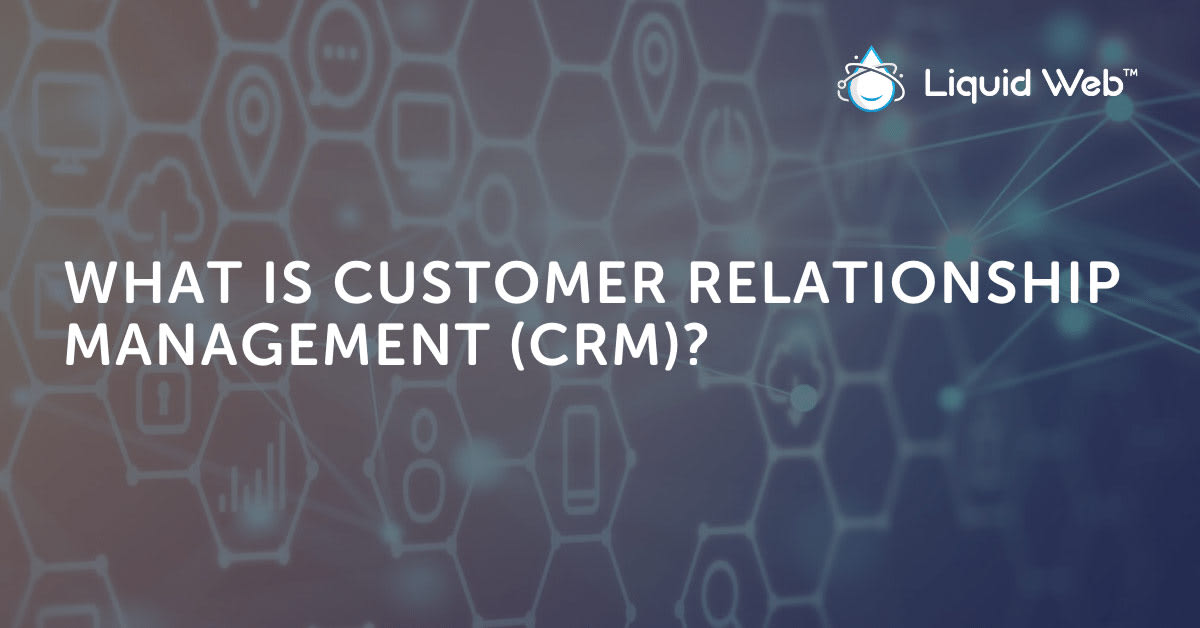
Wondering what CRM (customer relationship management) is, how it could benefit your business, and which software is best?
No matter what type of business you are running, you will likely have similar business functions that need to be done. Every business needs to preserve and manage customer accounts, track payables to suppliers, comply with tax payments, and dozens of other factors crucial to operations.
Perhaps most importantly, this list of essential functions includes one factor that looks different for every business but often determines long-term success. This factor is: how do you stand out to your customers amongst the competition?
This is where customer relationship management comes in.
What is CRM?
CRM, or Customer Relationship Management, is a business strategy. In a practical sense, it often involves tracking customers, identifying the opportunities to offer discounts or perks, and maintaining regular communication to stay top of mind for continued business.
The goal is customer retention, and in today’s competitive marketplace, that often comes from the sense of a personalized relationship with buying from you.
However, it is important to also see CRM as a business strategy for long-term success by viewing the program as an ongoing data collection effort to be analyzed and leveraged to refine the value you provide to your customers.
Interactions and transactions are an excellent supply of primary data about what is driving your business. This is why business leaders must empower all teams to be involved with CRM by accurately inputting records and handling all touch points in step with the organization’s CRM strategy. When data is input accurately, all teams can provide the best possible service to the customers.
What is the Difference Between Customer Relationship Management vs Customer Management Systems (CMSs)?
If you are beginning to think deeply about CRM today, you may be wondering where to start. This strategic initiative does not start with picking CRM software. It starts with thinking about how you engage with your customers, then defining every touch point along the experience.
While customer relationship management is about the process of engaging customers, think of Customer Management Dystems as the technology or platform by which you drive these interactions.
Here are the three steps to solidify your CRM strategy and choose the best Customer Management System:
- Outline goals for the kinds of improvements you wish to see from implementing a CRM.
- Ensure that your business is appropriately staffed to execute on the plan.
- Begin to look for software that will properly enable your strategy.

What is CRM Software?
Many business leaders who are familiar with CRM have heard about it through the context of CRM software. Primarily, customer relationship management takes place when a company realizes that maintaining a feedback loop matters.
A company that fails to have a well-established communication system can suffer. This kind of situation tends to worsen as the company grows. So, it’s important to implement the right software when the time comes.
Some CRM software is appropriate for small to medium-sized agencies, and others are created to be customized for enterprise-level organizations.
It is important for small-to-medium enterprises (SMEs) to identify that using CRM software tailored for bigger companies may not be a good idea. Implementation expenses for this can quickly become overwhelming and costly.
The best choice for success isn’t the biggest and most well-known software. The best choice is the CRM software that provides the value for your strategy.”
While CRM represents and refers to all strategies, techniques, tools, and technology utilized by corporations for developing, keeping, and obtaining customers, CRM software is used to make sure that each step of the process will be profitable.
Products such as Siebel, Salesforce, and RightNow are often fully-integrated systems with high commitment to run every aspect of a CRM strategy.
Open-source choices such as SugarCRM may also be of interest for their capability for customization and community support.
Meanwhile, well-known players for SMEs such as HubSpot continue to be leading providers.
In addition, many marketing automation products are beginning to add features that turn the offering into a fuller CRM suite. This is the pattern happening in the market with products such as Mailchimp.
Regardless of your choice, pay attention to:
- Details of operational features.
- Reporting and analysis.
- User collaboration.
- Requirements for execution in terms of hosting and maintenance.
Keep in mind that more flexibility does not always mean better.
While flexibility is important for any new tool added to grow your company, every additional layer of flexibility adds complexity. Following the best practices of how a particular piece of software wants you to do things can be a blessing in disguise.
The costs of maintaining something you’ve customized, patched, and changed always fall on you, and over time, these could be unmanageable. This is the concept of technical debt, and managing it should be a part of your decision-making process.
Free CRM Systems
Free CRM software can be an excellent way for new users to get more familiar with using a CRM system before committing to purchasing a tool.
Most free or freemium versions of paid platforms will have limited functionality compared to paid tools, but they are still offering businesses the advantage of having their complete contact list centralized in one location.
Of course, a free tier can be a great way to get your company in the door when your CRM strategies demand premium features. This is an excellent place to be, and if you have built a strategy alongside a product, it can often be the best way to go.
However, there’s always items to watch out for when experimenting with free CRM systems.
The most important is lock-in: make sure that your data is exportable. A good product will stand on its own and not place roadblocks in front of you if you need to move to a different platform down the road.
It’s also worth noting that many free tiers of CRM systems will limit free users with a cap on the number of contact records. If you choose this kind of free tier, monitor your contact record log, and make a decision on a premium product well before it is an emergency.
Some CRM software with free tiers to consider are Agile CRM, HubSpot CRM, and Zoho CRM.
Choosing the Right CRM Strategy and Software
In an increasingly competitive business environment, establishing and maintaining personalized relationships with customers is essential for success. CRM software can be at the center of a company’s execution. However, a strategic approach to how we communicate and measure success is crucial.
Ensure that your team selects suitable software according to your company’s size. Have the right size team to manage your program, and you’ll be on the way to retaining customers and collecting data to help with the growth and development of your business.
[ad_2]
Source link







